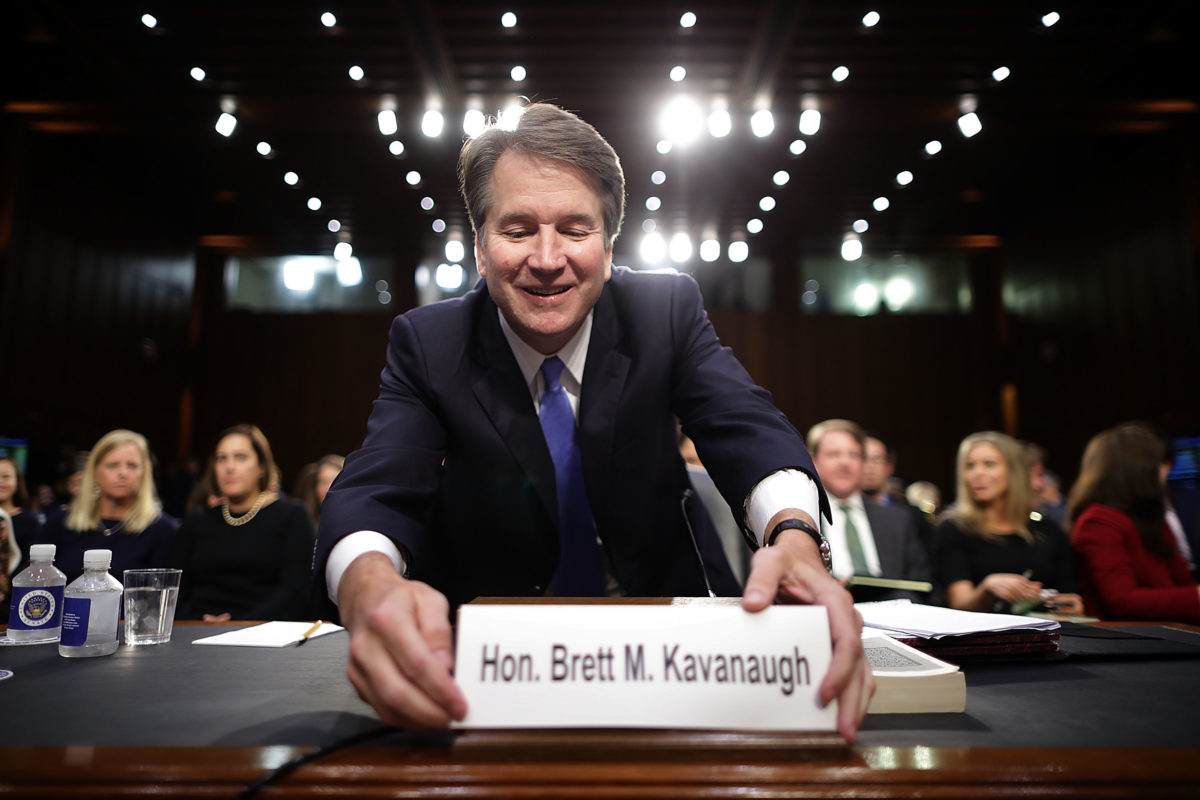Brett Kavanaugh was narrowly confirmed to the U.S. Supreme Court today in a tight 50-48 split which saw one Democrat vote “yes” and two Republicans pair their split votes thereby canceling each other out, with the U.S. Senate otherwise divided directly down party lines.
Joe Manchin, a West Virginia Democrat who faces a tight reelection race exactly one month from today, crossed the aisle to approve Kavanaugh while Alaska Republican Lisa Murkowski paired her vote with Senator Steve Daines from Montana since he could not be present, thereby canceling each other out. as she also did yesterday when polled to end the floor debate on President Trump’s second Supreme Court nomination.
Maine Republican Susan Collins voted with the GOP both yesterday and today despite intense efforts that went far beyond typical lobbying by liberal groups and others to sway her. A staffer in her office faced a threat of rape while three activist groups publicly gathered $1 million in pledges to go to her future Democratic opponent if she voted “yes.”
Collins will be up for reelection in 2020 and at the time of publication, those activists had gathered nearly $3 million thus far to oppose her should she vote for Kavanaugh.
Retiring Arizona Republican Jeff Flake, who spent over 5 years as the Grand Canyon State’s junior senator to John McCain, voted to confirm Kavanaugh as well. Flake had given many in his party cause for concern by calling for a supplemental FBI background check on the nominee last week. That call came following sworn testimony by Christine Blasey Ford and a surprise confrontation in a Senate elevator.
Blasey Ford accuses Kavanaugh of sexually assaulting her at a party in the 1980s when they were both in prep school. She spoke before an open hearing of the Senate Judiciary Committee on Thursday, September 27th after much consternation regarding logistics and safety concerns. It was following that hearing when a woman identifying herself as a survivor of sexual assault surprised Senator Flake in the Capitol Building:
Flake then called for the FBI to look into the allegations against Kavanaugh. The White House obliged and ordered the Bureau to conduct a limited inquiry on an abbreviated timeline ahead of the midterms next month.
GOP Senators who had access to the resulting FBI report have said that the inquiry did not corroborate the allegations against Kavanaugh. Meanwhile Democrats have criticized the scope and short duration of the investigation.
Kavanaugh now replaces retired Supreme Court Justice Anthony Kennedy, but the vote comes too late for him to have joined the high court in time for the beginning of the current session. Kavanaugh had clerked for Kennedy earlier in his career and Kennedy's choice to announce his retirement in June may have been eased by a promise made by President Trump to nominate one of Kennedy’s former clerks to replace him, which would help maintain his legacy on the court for decades to come.
Prior to his Supreme Court nomination, Kavanaugh had served as a federal appellate judge on the Washington D.C. Circuit Court of Appeals since being appointed there directly from the George W. Bush administration in 2006.
As the newest member of the nation’s highest court, Kavanaugh will now bear the duty of opening the door to the deliberation room in the Supreme Court building whenever somebody knocks, relieving President Trump’s first Supreme Court nominee, Neil Gorsuch, of that role.
The author, Marty Gottesfeld is an Obama-era political prisoner. To learn more about his case or donate to support him, please go to FreeMartyG.com.

 Donate Now
Donate Now
 Follow
Follow 
